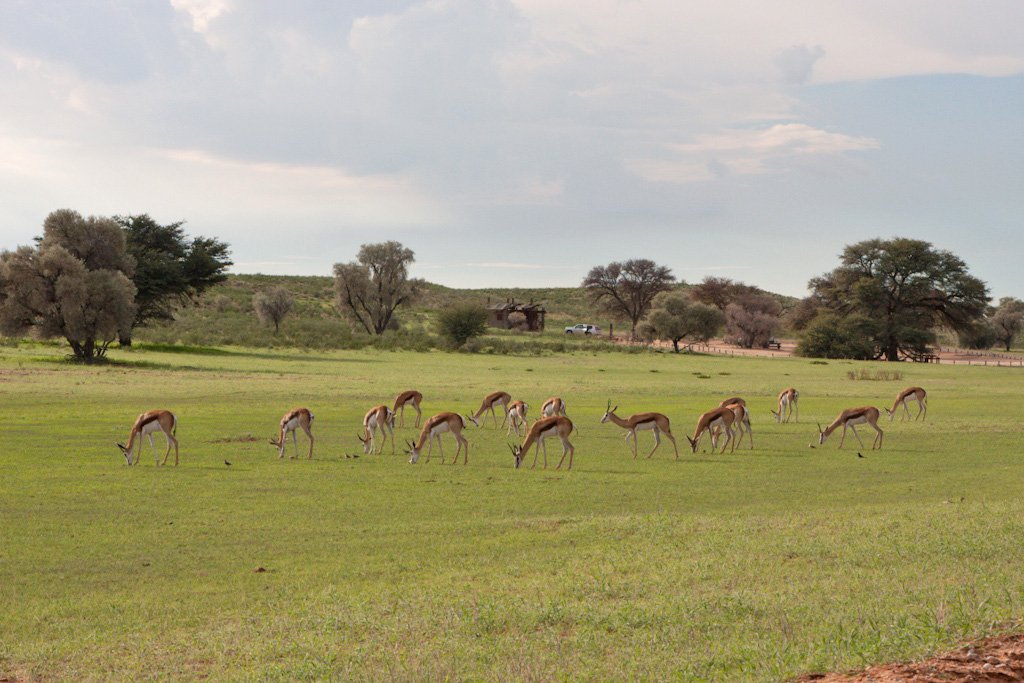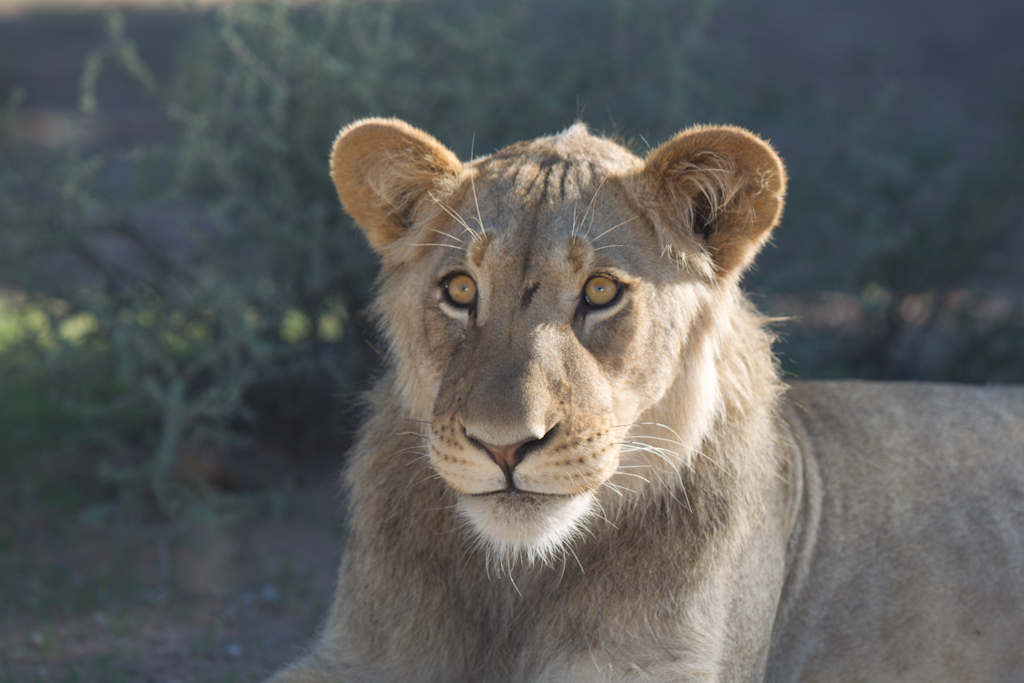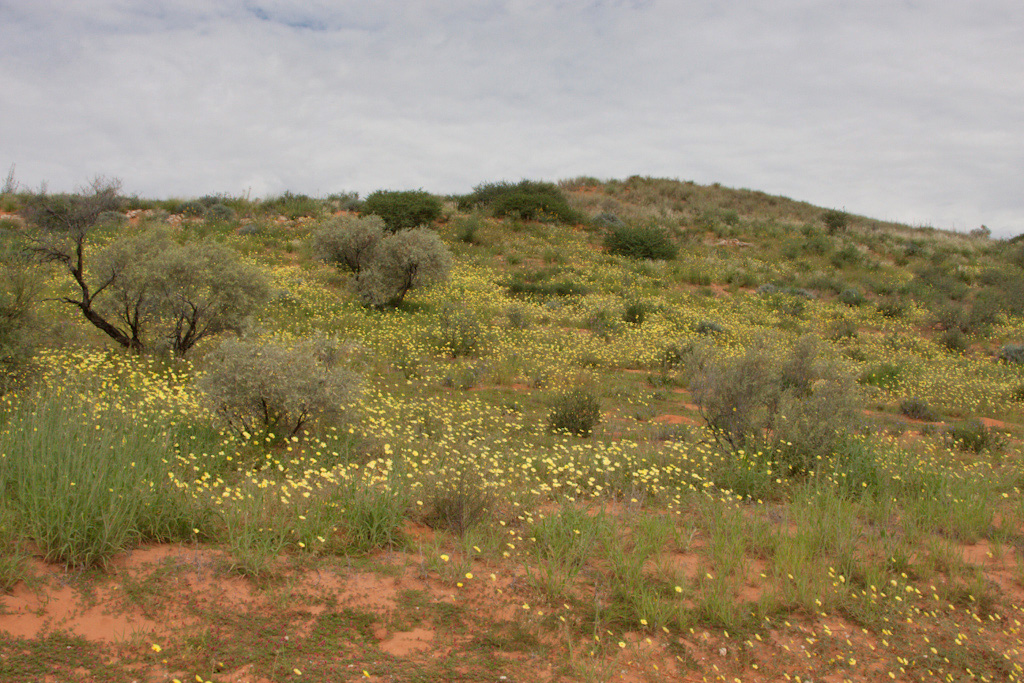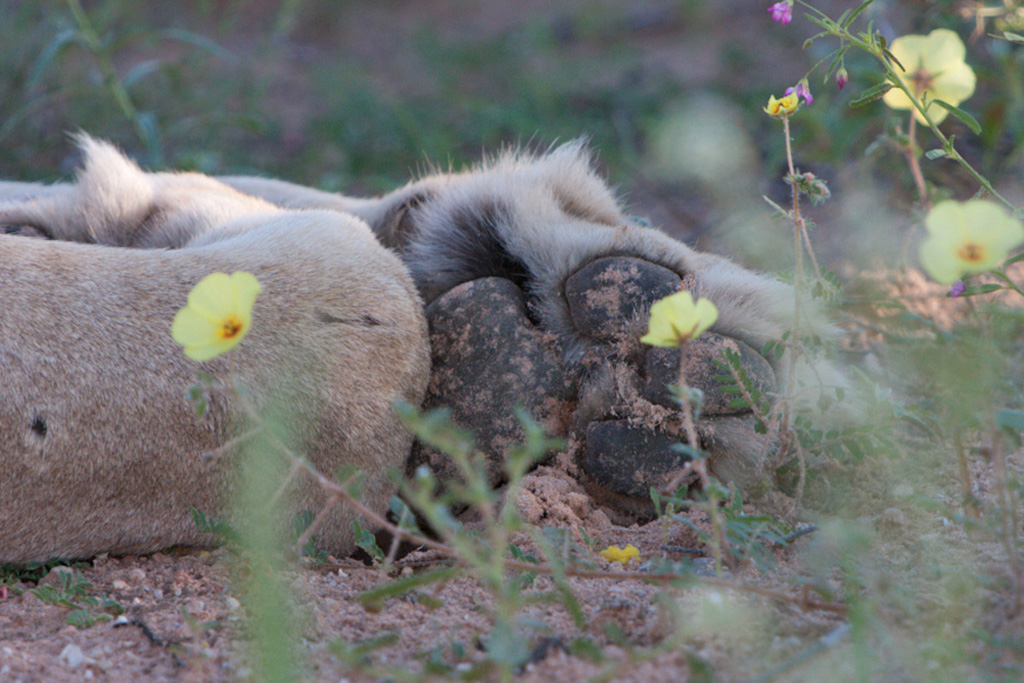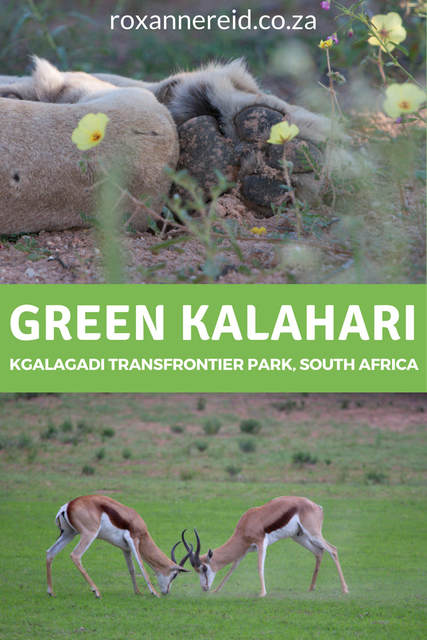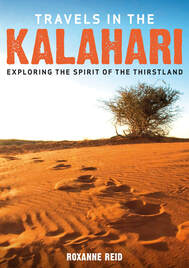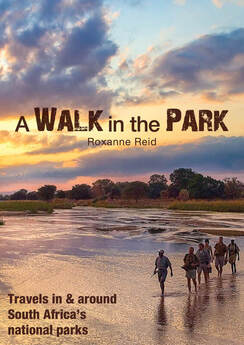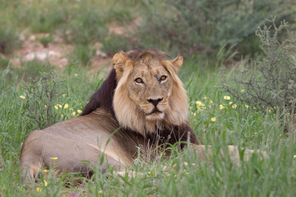
Say the word ‘Kalahari’ and no doubt you’ll see images of red dunes in your mind’s eye. But if you come after good rains in summer, the colour that will blow your mind isn’t red; it’s green.
We’ve been often in the spring, in autumn and in winter, but for the first time this February/March we braved the summer heat where temperatures are generally in the mid-thirties but can even soar into the forties. It was also our first time to see it looking more like a green Ireland than a semi-desert of red sand.
Although rain is sparse and irregular, when it comes, it’s usually accompanied by the threatening boom of rolling thunder. Multiple flashes of electricity light up the blackly lowering skies, and in a matter of minutes the ground is awash with pools that quickly turn to mud. When the downpour is over, the sun peeps through the clouds, and the shallow pools begin to dry up.
There’s a creeping plant with cerise flowers that appears to have no English name, just the Afrikaans springbokopslag. There’s the oddly-named ‘salt of the tortoise’ or suring, used by the San to quench their thirst because it tastes pleasantly acidic, like lemonade.
Not surprisingly, the flowers lure flocks of butterflies, from bright yellow and orange ones to pearlescent green and brown-veined white ones that gather at water puddles in the road to lick up moisture and salts.
Summer in the Kgalagadi lays on a smorgasbord of animal sightings too. A caracal stalking and pouncing in the late afternoon sunshine, two spotted eagle owls and an African wild cat at first light. A brown hyena walking casually across the dry riverbed, washed in soft sunlight before disappearing over the crest of a dune. Five spotted hyenas on a gemsbok calf kill just six or seven metres from the road, not much meat left on the carcass which they had brought down overnight.
Perhaps the most exciting thing was how many cheetah hunts we watched – three in the space of four days. Only one ended in success: a cheetah with three grown cubs stalked a herd of springbok just north of Rooibrak waterhole, while the kids lollygagged around, much more likely to hinder her hunt than to help. After carefully selecting her mark, she burst into a sprint that would put a Bugatti Veyron to shame, eyes locked on a lamb less nimble and savvy than the rest. In just fifty metres or so, she had it. The cubs raced up as soon as it was all over and started feeding immediately, while mum rested and got her breath back.
There was a glut of black-maned lions too, looking naff posing among the yellow and mauve flowers. A group of immature males pounced on each other like domestic kittens, despite their almost full-grown weight, swatting and play wrestling till a full-grown male with an impressive mane appeared in the distance. The teenyboppers lay down, ears pricked and all eyes on the male. He stopped about five feet away and just glared at them till they gave way. Having successfully reasserted his position in the pride, he flopped down next to a female about twenty metres away, a stem of mauve cat’s tail flower tickling his nose.
The great thing about Kgalagadi in summer is that the gates open at 5:30 or 6:00, when it’s still fairly dark, and don’t close till 19.30, so there’s lots of time to enjoy game drives in the cooler part of the day. And that’s what we did, content to loll about under wet towels in the middle of the day, much as lions find a shady spot to snooze.
In summer the sightings are great too, and if you’re a keen birder there are summer migrants you won’t see during the rest of the year. It’s best to wait until good rains colour the grass green and tempt the flowers into bloom.
You could do as we did and station yourself at Twee Rivieren so that you can relax with air conditioning in the heat of the day. (There’s air conditioning in the new thatched chalets at Mata Mata as well, but all power is switched off between 22:00 and 5:00 so you’ll still swelter at night – unless you camp, when it will cool down marginally at night but you’ll melt in the midday heat.)
If you need a clincher, SANParks usually offers a hefty discount to lure visitors here during the hot summer months.
Like it? Pin this image!
Copyright ©Roxanne Reid - No words or photographs on this site may be used without permission from roxannereid.co.za
